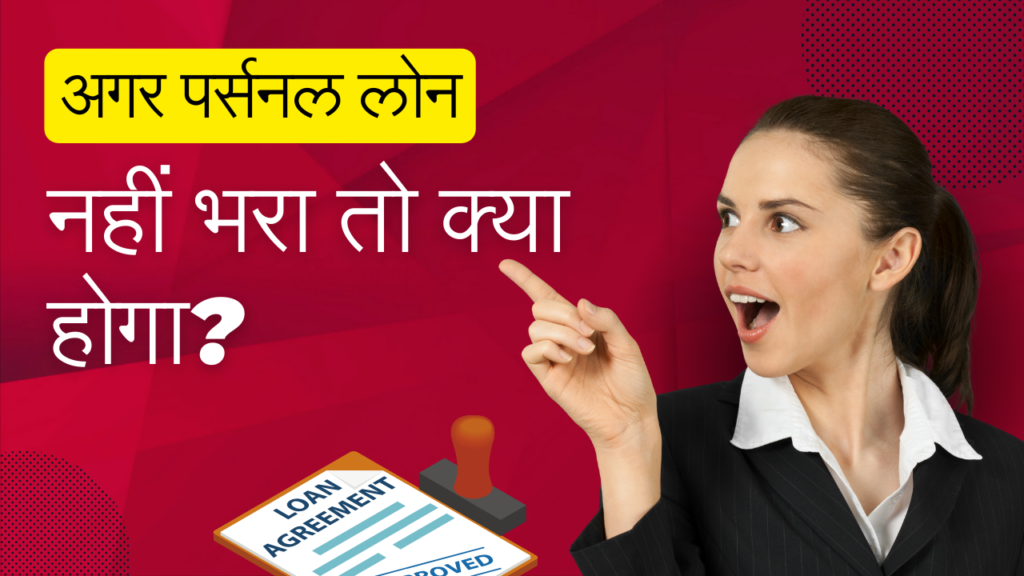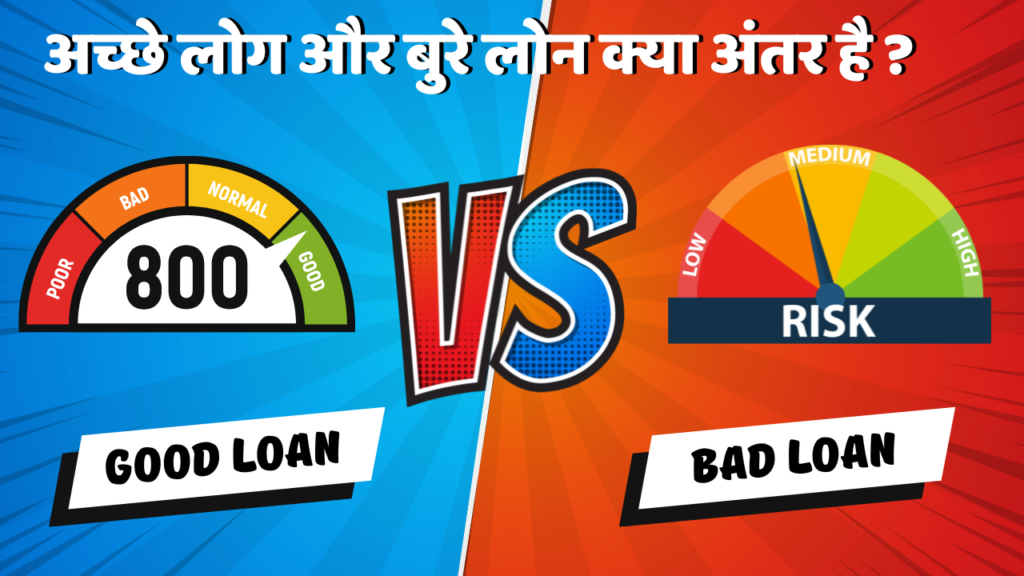Personal loans can provide financial support when you need it most, but when circumstances change—such as a job loss, medical emergency, or other financial strain—repaying these loans can become difficult. In such cases, you might explore options like loan settlement to ease the financial burden. Loan settlement allows borrowers to repay a portion of the outstanding loan, after which the bank writes off the remaining balance. This can provide immediate relief, but it does have long-term effects on your financial standing, especially your credit score. In this blog, we’ll walk you through the process of settle IDFC First Bank Personal loan, what to expect during negotiations, the impact on your credit score, and some alternatives you might consider.
What is Loan Settlement?
Loan settlement is an agreement between a borrower and the bank where the borrower repays a portion of the outstanding loan, and the bank forgives the remainder. Settlement is usually offered when the borrower is in financial distress and unable to continue making regular payments. While it provides immediate financial relief, it can negatively impact your credit score and your ability to secure future loans.
Why Consider Loan Settlement with IDFC First Bank?
Several situations may prompt you to consider settling your personal loan with IDFC First Bank:
- Job Loss: If you’ve lost your job and are unable to meet your EMI payments, settlement may be an option to avoid defaulting on the loan.
- Medical Expenses: Unforeseen medical emergencies can disrupt your financial situation, making loan repayments difficult.
- Financial Hardship: Changes in your income, business losses, or increasing debt burdens may make regular EMI payments unmanageable.
- Other Debt: When juggling multiple loans or credit cards, settling one loan could help reduce overall financial pressure.
By settling your personal loan, you can close the loan with a reduced payment, though it should be your last option due to the long-term impact on your creditworthiness.
Steps to Settle IDFC First Bank Personal Loan
Here are the steps to follow if you’ve decided that settling your personal loan with IDFC First Bank is the best option for you:
Step 1: Assess Your Financial Position
Before approaching the bank, it’s essential to understand your own financial situation. Make a list of your income, expenses, assets, and other outstanding debts. This will help you determine how much you can realistically afford to offer as a settlement. Also, gather documentation that proves your financial distress, as you will need it when negotiating with the bank.
Step 2: Contact IDFC First Bank
Once you have a clear understanding of your financial situation, contact the loan recovery department at IDFC First Bank. You can either visit a branch or contact them through their customer service channels. Explain your situation clearly and inform them that you are considering a loan settlement. Be honest about your financial struggles and your inability to repay the loan in full.
Step 3: Provide Proof of Financial Hardship
To support your request for a settlement, IDFC First Bank will ask for evidence of financial hardship. You may need to provide the following documents:
- Proof of income loss (termination letter, pay stubs, or business loss records)
- Medical bills if health issues have affected your financial situation
- Bank statements showing your current cash flow and liabilities
- Documents showing other outstanding loans or debts
The bank will use this information to evaluate your case and determine whether to offer you a settlement.
Step 4: Negotiate the Settlement Terms
Once the bank reviews your documents, they may propose a settlement amount. The settlement amount typically ranges from 50% to 80% of the outstanding loan balance. You may need to negotiate the terms based on your financial capacity. It’s important to be realistic about what you can afford while ensuring that the amount agreed upon is within your means to pay.
Step 5: Finalize and Complete the Settlement
Once both parties agree on the settlement amount, IDFC First Bank will provide a settlement agreement in writing. This agreement will outline the amount to be paid and the payment deadline. Review the agreement carefully before signing it. After making the payment, request a No Dues Certificate from the bank, confirming that your loan has been settled and that you are no longer liable for any further payments.
Key Factors to Keep in Mind About IDFC First Bank’s Settlement Policies
IDFC First Bank has specific policies in place for loan settlements, which typically follow the guidelines set by the Reserve Bank of India (RBI). Here are a few key factors to keep in mind:
- Eligibility: IDFC First Bank may only consider loans for settlement if they have become Non-Performing Assets (NPAs), meaning the loan has been overdue for more than 90 days. However, in some cases, they may also consider settlements for loans that are nearing default.
- Settlement Amount: The settlement amount is usually a percentage of the total outstanding loan amount and depends on factors like your financial condition and the length of your delinquency.
- Documentation: IDFC First Bank requires valid proof of financial hardship, such as medical bills, proof of job loss, or income reduction, before approving a settlement.
Impact of Loan Settlement on Your Credit Score
One of the major downsides of settling a loan is its effect on your credit score. Here’s how it impacts you:
- Credit Score Drop: Loan settlement is reported to credit bureaus as “settled” rather than “closed”. This indicates that you did not pay the full amount, leading to a significant drop in your credit score.
- Long-Term Impact: The status of a settled loan stays on your credit report for up to 7 years. This can make it harder for you to get approved for future loans or credit cards.
- Difficulty in Securing Future Loans: If you settle a loan, lenders may view you as a higher-risk borrower, leading to potential difficulties in getting future loans or higher interest rates if approved.
Alternatives to Loan Settlement
Before choosing to settle your loan, consider some of these alternatives that could potentially protect your credit score and provide relief:
A. Loan Restructuring
Loan restructuring is an option where IDFC First Bank may agree to modify the terms of your loan to make it more affordable. This could include lowering the interest rate, extending the tenure, or reducing the EMI amount.
B. EMI Moratorium
If your financial difficulties are temporary, you can ask IDFC First Bank for an EMI moratorium, allowing you to defer your payments for a certain period without it being considered a default. This option is often provided during economic hardships or personal financial crises.
C. Debt Consolidation
If you are managing multiple loans, consolidating your debts into one loan with a lower interest rate can help you make a single, more manageable payment. Debt consolidation can simplify your finances and reduce your monthly obligations.
D. Borrowing from Family or Friends
If possible, consider borrowing money from friends or family to repay the full loan amount. This can help you avoid the credit score damage that comes with settling a loan.
Conclusion
Settle IDFC First Bank Personal loan can provide relief if you are struggling to make payments due to financial difficulties. However, it’s important to be aware of the long-term impact on your credit score and explore alternative options before deciding to proceed with a settlement. Always communicate openly with the bank and seek professional advice if needed to make the most informed decision for your financial health.
Frequently Asked Questions (FAQ’s)
Ans: The settlement process typically takes between 30 and 90 days, depending on the complexity of your case and the bank’s evaluation process.
Ans: Loan settlement is generally considered when you are significantly behind on payments and unable to repay the loan in full. However, you may be able to negotiate a settlement if your financial situation is severe.
Ans: If you do not settle or repay your loan, IDFC First Bank may initiate legal proceedings, and your loan will be classified as an NPA (Non-Performing Asset), leading to further penalties and severe damage to your credit score.
Ans: It may be difficult to secure loans after a settlement since it leaves a negative mark on your credit report for several years. If you are approved for future loans, they may come with higher interest rates.
Ans: Foreclosure means paying off the loan in full before the end of the loan tenure, while settlement involves negotiating with the bank to pay a reduced amount that closes the loan.













